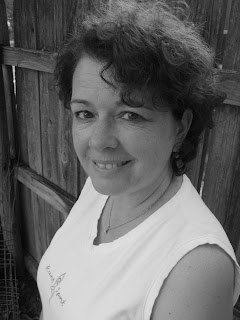"I Need Some Happy"
Like most people, my days at work follow predictable grooves. Teaching ESL is the best job I’ve ever had, but, though they keep me laughing with mistakes like, “I put the turkey in my pocket”, most aren’t yet able to communicate much of substance.I dictate, “What does your mother do?” They write, “My mother is homemaker.” I say, “What does your father do?” “He is businessman.” I tell them to put them together with “and” and a comma.
A Korean girl writes, “My mother is waitress, and my father stays home.”
“You need an “a”, remember? She’s just one waitress; it’s a count noun.” This girl can talk up a storm, so I ask, “Your father stays at home?”
“Yes, well, he’s sick.”
I respond with concern, and pry further. My husband says I make people uncomfortable with all my questions. I call his reticence a guy thing and keep on, though I know he’s often right about that. I just can’t seem to help myself. Nosy? I like to call it “interested”.
“No, it’s not disease. He has mental problem. He was in the war, and saw terrible things. His best friend saved his life. But now he’s so old, like only 60, but from all that he’s so old. It’s so sad.”
What war?
Vietnam.
He’s a Vietnam Vet. Just like American Vietnam Vets. I had no idea.
Only in their country there’s no support, no common knowledge about post-traumatic stress syndrome, why they can’t hold jobs, trust people, talk about it, why they drink “to make the pain go away.”
I move on to the next student, check for the comma, look for the “a”, sobered by her story, by my ethnocentrism. I’m humbled that she told me. It takes so much effort in a second language. And I’m no one, really. Just her teacher. But I feel privileged.
It’s not the first time a student had to leave the room for a few minutes. Last year, there was another student, in his first weeks here, homesick, struggling, the lone Vietnamese student in our program. He could read and write well, but it was almost impossible to understand him orally, but he tried and tried, answering every question.
“What do you need?” I asked round-robin. Others said, “I need some apples." "I need some milk. " "I need some money.”
He said, “I need some…happy.” No four sadder words have I ever heard. He teared up, I teared up – the universal language. He left quickly.
The other students, if they understood, didn’t have the language to pry. I resumed the exercise. He soon returned, took his seat, ready to go again.
I’m amazed at these students, their bravery in their vulnerability. Trying to communicate in a second language things of the heart.
Later, the beautiful daughter of the Vietnam Vet saw me, her eyes brightened, and she gave me a hug – a very unusual thing for a Korean to initiate with a teacher. I said, “I’m sorry I made you cry.”
“No, no. It’s okay. I’m proud of him.”
Across the divides of race, age, religion and language, we communicate. It’s a beautiful thing.


3 comments:
"He teared up, I teared up – the universal language." - I love that - yes, the universal language (as laughter can be).
Sorry it took me so long to read it. I loved it. Your blog title is great.
Your blog has given me "happy" as I have struggled with "wildly disparate" moods the past few days. The video of Paul Potts singing opera feeds my longing for another time and place.
You quoted Cole's sermon-- the part about sitting on the shoreline and evaporating. I think I gaze at my reflection in the water and grow more enamored with myself. I'm enamoring instead of evaporating. Anyhoo, I think this blog is a great venue for your incredible gift, and I thank you for giving this "wildly disparate" friend a safe place to be wild.
Post a Comment